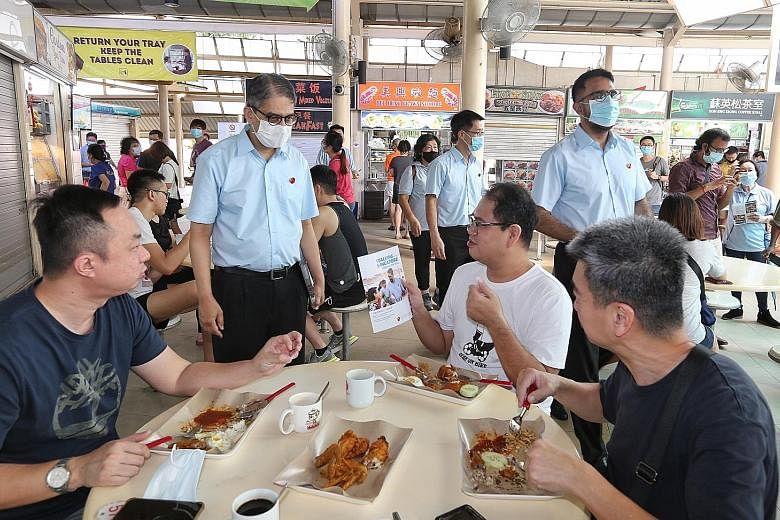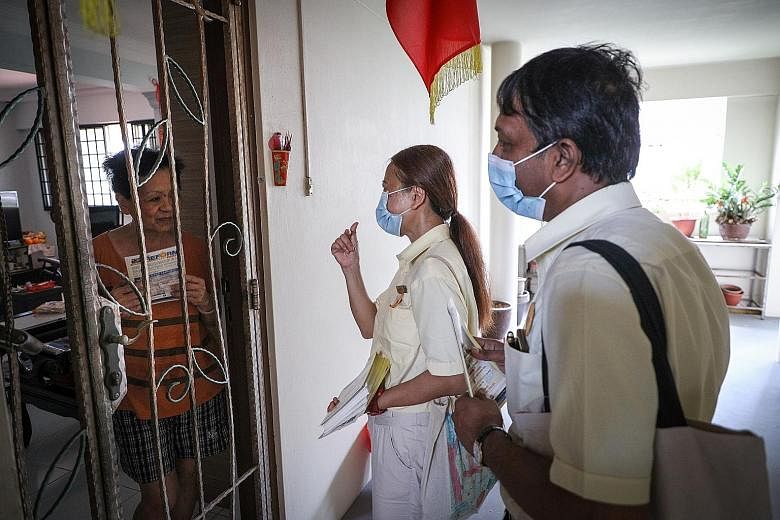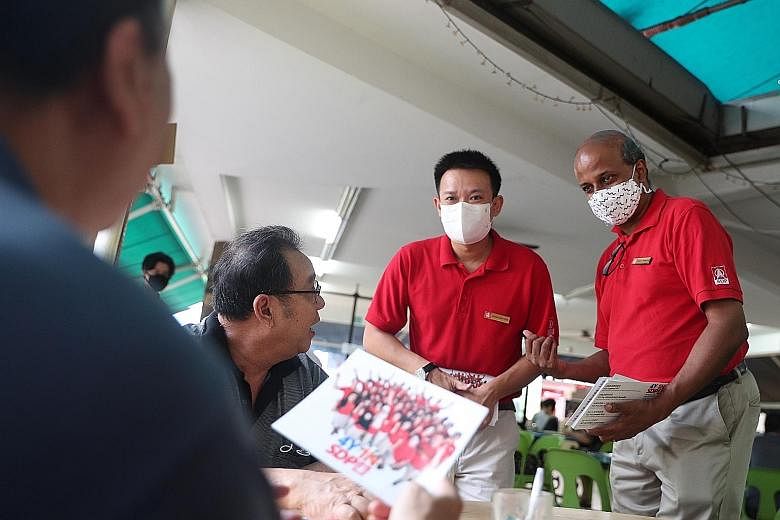Opposition parties are taking a more restrained approach to this election than in 2015, say analysts, noting that the bluster and ambition of the past election has been replaced with warnings of a PAP clean sweep.
The change is most notable in the Workers' Party (WP), which had been on an aggressive push to expand its territory at the last election, fielding its second largest slate to date and sending its leaders out of their home constituencies to campaign for others.
This year, the party scaled back its slate and placed all its parliamentarians into the two constituencies it is defending, Hougang SMC and Aljunied GRC.
The change in strategy was noted by Prime Minister Lee Hsien Loong yesterday, who called the opposition wipeout described by WP chief Pritam Singh as an unrealistic outcome and a tactic.
Political observers say the change in approach across all opposition parties this time is likely borne out of the poor showing in 2015 and the uncertainty caused by the Covid-19 crisis. In 2015, the PAP increased its vote share to 69.9 per cent, up 9.8 percentage points from 2011, they said.
Associate Professor Bilveer Singh, who teaches government and politics at the National University of Singapore, said: "All the opposition parties are on the defensive."
He said the PAP has rolled out "policies which are largely popular and populist (during the pandemic), even though they are presented as essentials to help the country".
"The opposition can't even criticise these policies as they benefit the voters," he said.
Political analyst Loke Hoe Yeong said that opposition parties, particularly the bigger ones, have been getting more adroit with their messaging over the years.
Mr Loke, who wrote The First Wave, a recent book on the history of the opposition in Singapore, said: "Most voters still want a PAP government, with a relatively smaller opposition... to keep the PAP in check.
"The more astute opposition parties understand this 'push and pull' cycle of Singapore politics, and they have strategised accordingly."
Similarly, Dr Felix Tan, associate lecturer at SIM Global Education, said that voters are not looking for an overhaul of politics.
They will take to familiar opposition parties and politicians such as WP and Progress Singapore Party (PSP) chief Tan Cheng Bock because of their track record and the similarity of the messaging, he said.
"Any political party in Singapore (hoping to gain ground) cannot deviate too much from PAP."
He added that some parties might have taken a less aggressive approach as they may lack experience to implement processes that can help bring Singapore out of the current recession, which voters will want to know more about.
On the WP's approach specifically, Dr Mustafa Izzuddin, a senior international affairs analyst at management consultancy Solaris Strategies Singapore, said 2015 showed that their ambitions for a significant number of seats in Parliament were not resonating with voters. "For the WP, saying that they want to make more inroads into Parliament has not been getting them the votes they want."
He said that Mr Singh's warning of a wipeout, though aimed at a national level, was likely "meant for Aljunied residents". The WP's priority is clearly to secure Aljunied - and the potential loss of the GRC is its greatest fear - while it is "quietly confident" of its win in Hougang, Dr Mustafa added.
The WP managed to defend Aljunied GRC from the PAP in 2015 by a narrow margin of 0.95 per cent of the vote. It retained its majority share in Hougang SMC, but lost Punggol East SMC to the PAP.
Singapore Management University Associate Professor of Law Eugene Tan agreed the WP had moderated its approach, saying that the decision to contest seven fewer seats shows that the party is "seeking to persuade voters that a strong mandate for the PAP can co-exist with a strong mandate for a loyal opposition in Parliament".
While WP maintains securing one-third of parliamentary seats as a medium-term goal, it is not pushing that line at this election.
Rather, Prof Tan noted, it is the aggressive parties like the PSP or Singapore Democratic Party that have called to deny the PAP a two-thirds majority.
As to the chances of a freak election result in either direction - a clean sweep for the PAP or the major opposition parties winning all the seats they contest - observers said such an outcome is possible, if unlikely.
Prof Tan said: "A freak election outcome is always within the realm of possibility, especially in this GE, where you have two diametrically opposite calls to voters: The PAP's clarion call for a strong mandate to deal with Covid-19 and the economic emergency unleashed, against the opposition's seemingly anguished cry of its complete annihilation."




